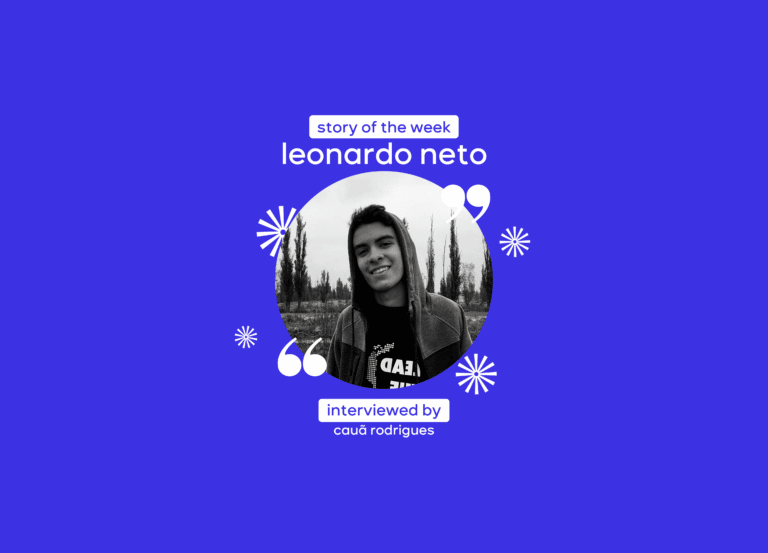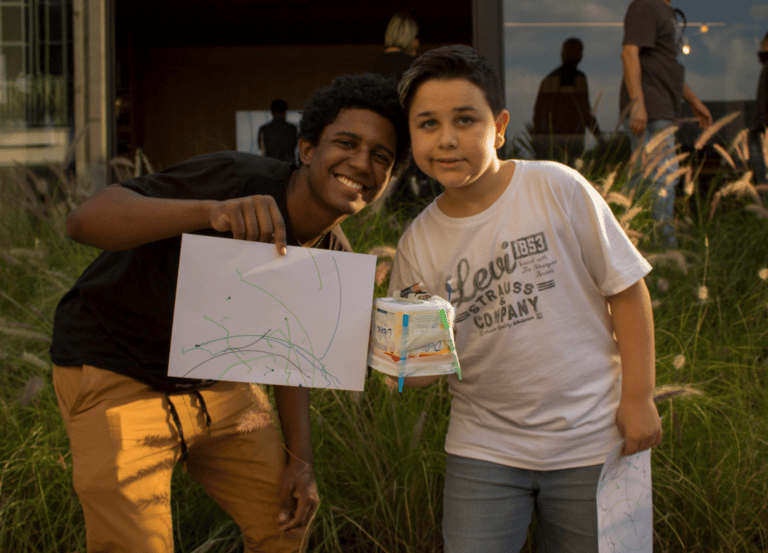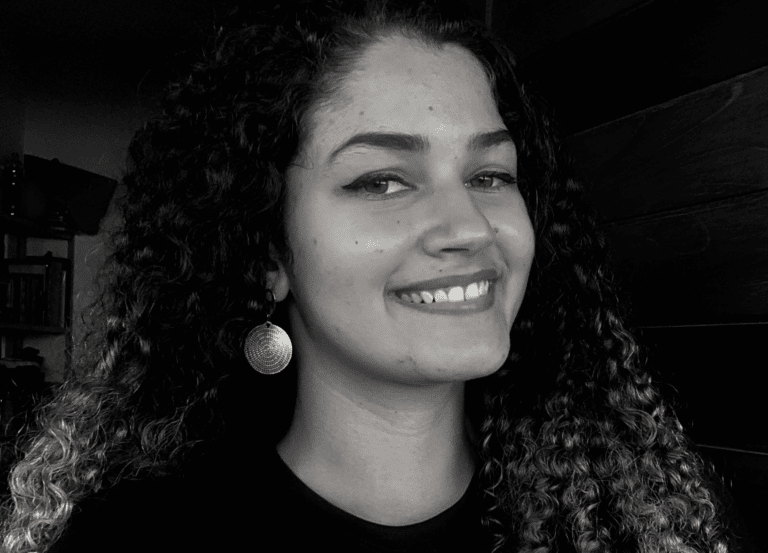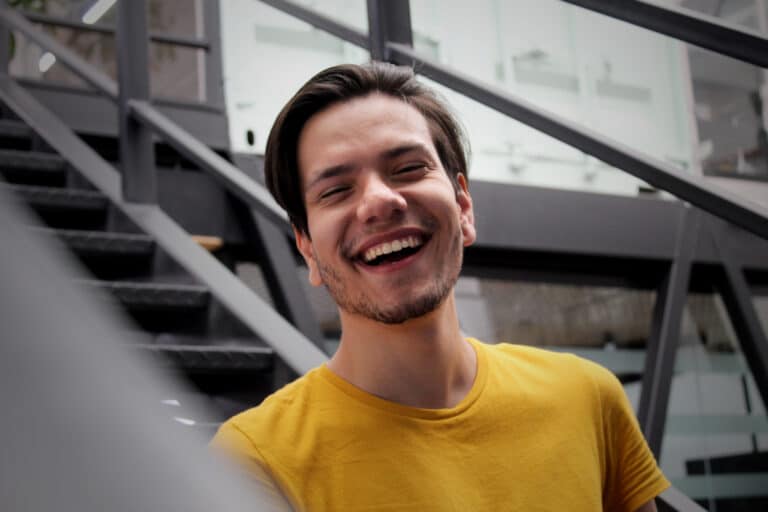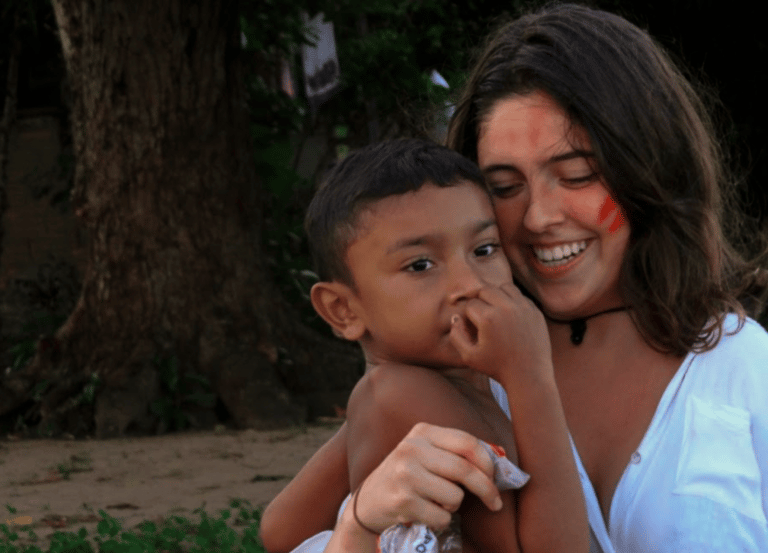Interview with Floppy, who willing to change the education system in Paraguay
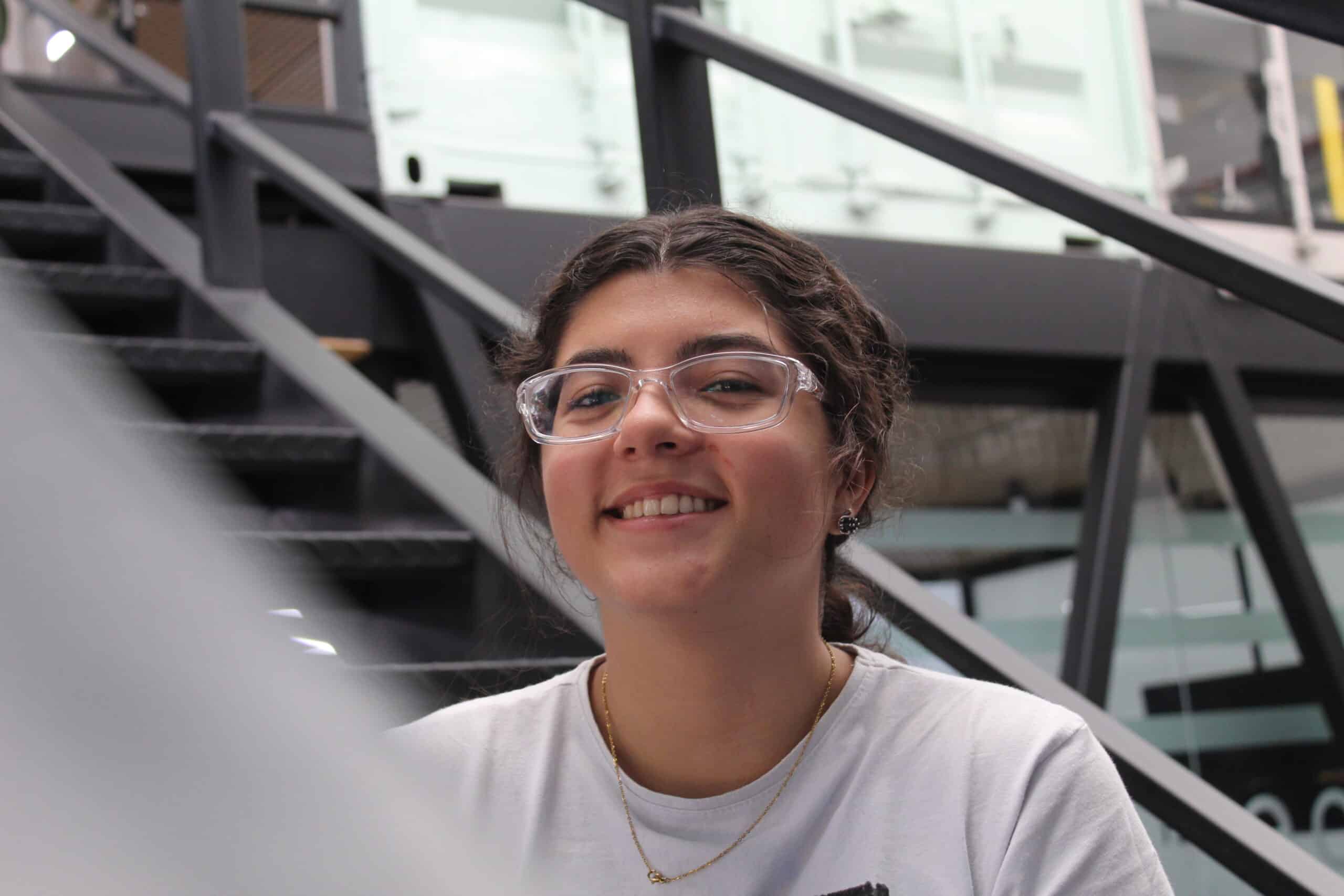
The average high school student likely would not bat an eye if their teacher were sleeping; if anything, they might smile, knowing that their school day just got much easier. But Florencia Doval, 16, who goes by Floppy, is no average student, and when she noticed teachers dozing off, she became furious.
Rather than taking the opportunity to mess around with friends, Floppy looked around the class and wondered, “How come some of these students don’t care even though they can’t even say a full phrase in English when we’ve supposedly been learning English for 12 years? What is going on with the education system in Paraguay that is allowing this to happen?”
These curiosities quickly developed into a global, education-minded obsession that led her deeper into a cycle of research, knowledge, anger, motivation, and action. As Floppy researched the intricacies of her country’s education policy and then compared it to the world’s education leaders, such as Finland, she noticed something else.
“All this interesting and powerful information I was learning was in English,” Floppy said. “These YouTube videos, blogs, and mini-documentaries I’d read or watch or listen to that would explain education systems in super detailed ways were all in English. There was not as much or as good of information in Spanish, or you’d have to rely on the English videos having Spanish subtitles if you didn’t speak English well.”
That is when Floppy closed the gap in her mind because she realized that if you are able to speak and comprehend a universal language like English, the world of information opens up to you, which in turn greatly expands the opportunities you can pursue.
Having been fortunate enough to learn English from a young age through games like Disney’s Magic English and other DVDs, Floppy began to reflect on what she could do to help others and make a change without needing to revolutionize Paraguay’s education system, for now.
Her home is about three blocks from Market 4, a vulnerable area of Asunción, Paraguay, heavily populated with the children of merchants who sell there throughout the day. Starting in February during Paraguay’s summer, she began teaching English classes and handing out pamphlets she made by hand at Market 4. Quite rapidly, her program, Ingles En La Plaza, or English At the Park, started expanding and turned into simply At the Park.
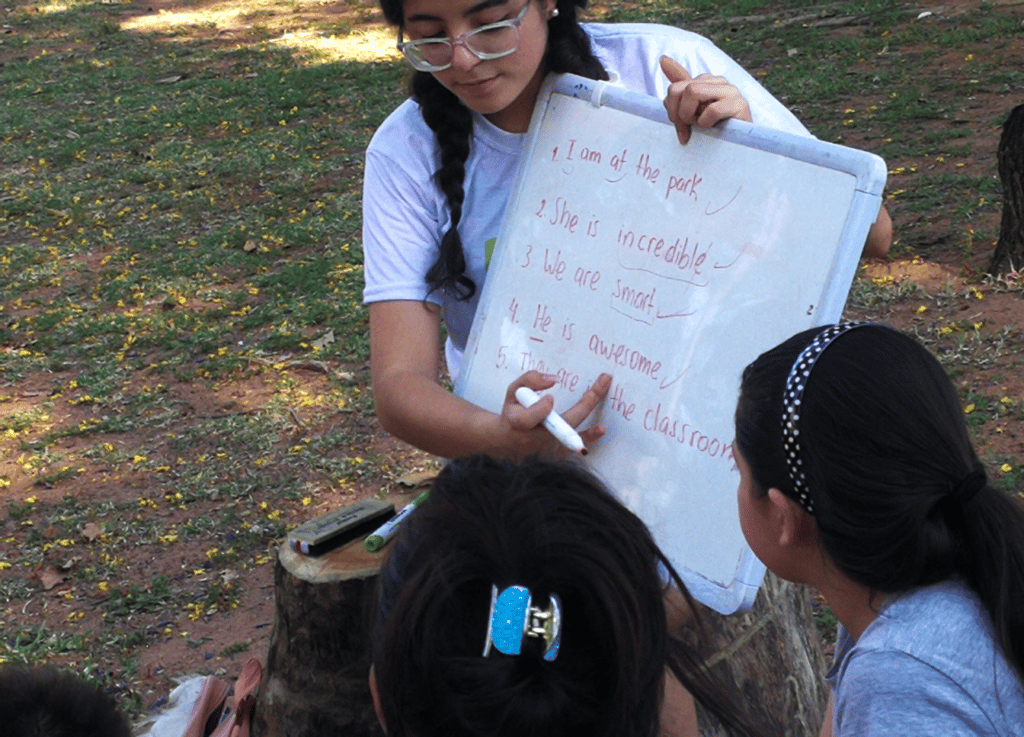
After focusing on only English teaching, it expanded to creating educational, secure, and creative spaces through revitalizing parks and plazas, with activities ranging from cinema and art to chess and guitar classes at the park. With the expansion also came the discovery of other problems, such as abuse, and so Floppy continued wondering why her country was facing so many of these problems.
“Is it because our society is disorganized? A bad government? Bad politicians? What is it that is causing all of this?” Floppy wondered. “The good thing is I have not lost hope. I think it is 100% possible to fix these problems. I’m becoming more involved in leadership organizations, and I see every day that there are kids that are more and more awake and aware. Even though their schooling represses their creativity, they are still finding ways to channel it and figure out solutions for their communities.”
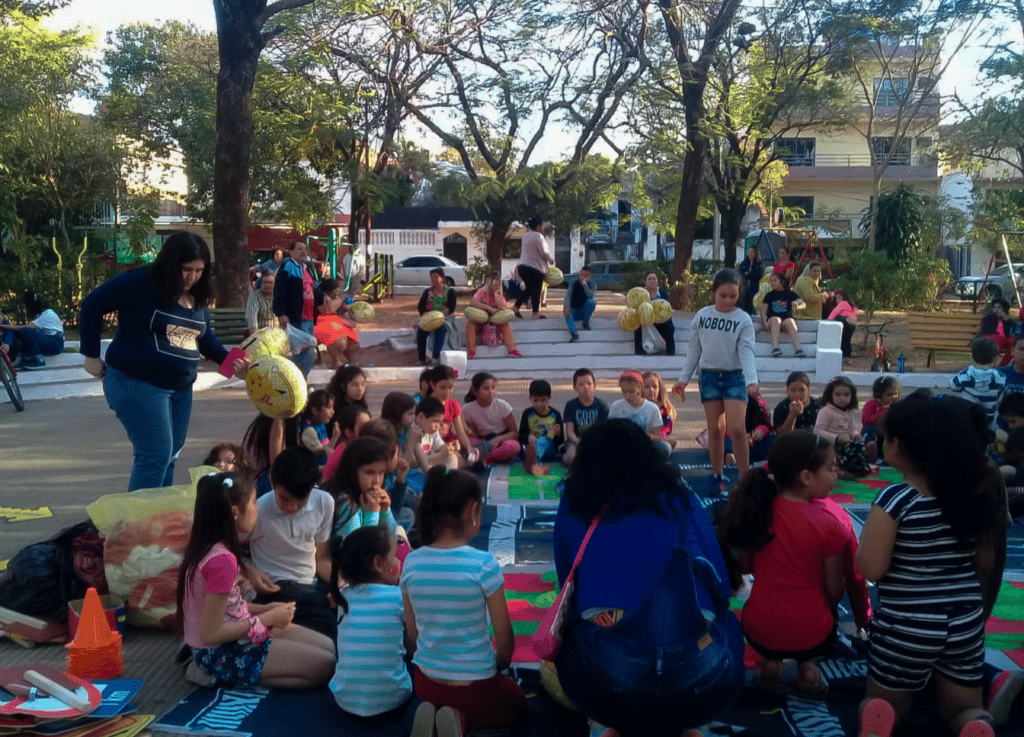
Floppy spoke passionately with a slimmer of heartbreak about a time when she was teaching English to one of her classes, and her youngest students quickly copied everything on the board and went up to show it to her and ask for a grade.
“That was very alarming to me that they had been wired this way from such an early age,” Floppy said. “I told them that what was important was coming to class and learning, and I am still working on breaking that type of learning machine they’ve been taught.”
One day she happened upon LALA and loved the social impact focus and rushed to turn in an application to join a Bootcamp even though the deadline was only a few days away. She was accepted and described that week as a “mind-opening experience” where she was, for the first time really able to engage with others in English and discuss her stories and passion.
Floppy was so moved by the program that despite only being a junior in high school, she convinced her school to let her skip three months of classes to go to the LALA Academy early. With her sights set on becoming Paraguay’s Minister of Education or even becoming its first female President, she cannot wait to continue on her journey to empower others.
